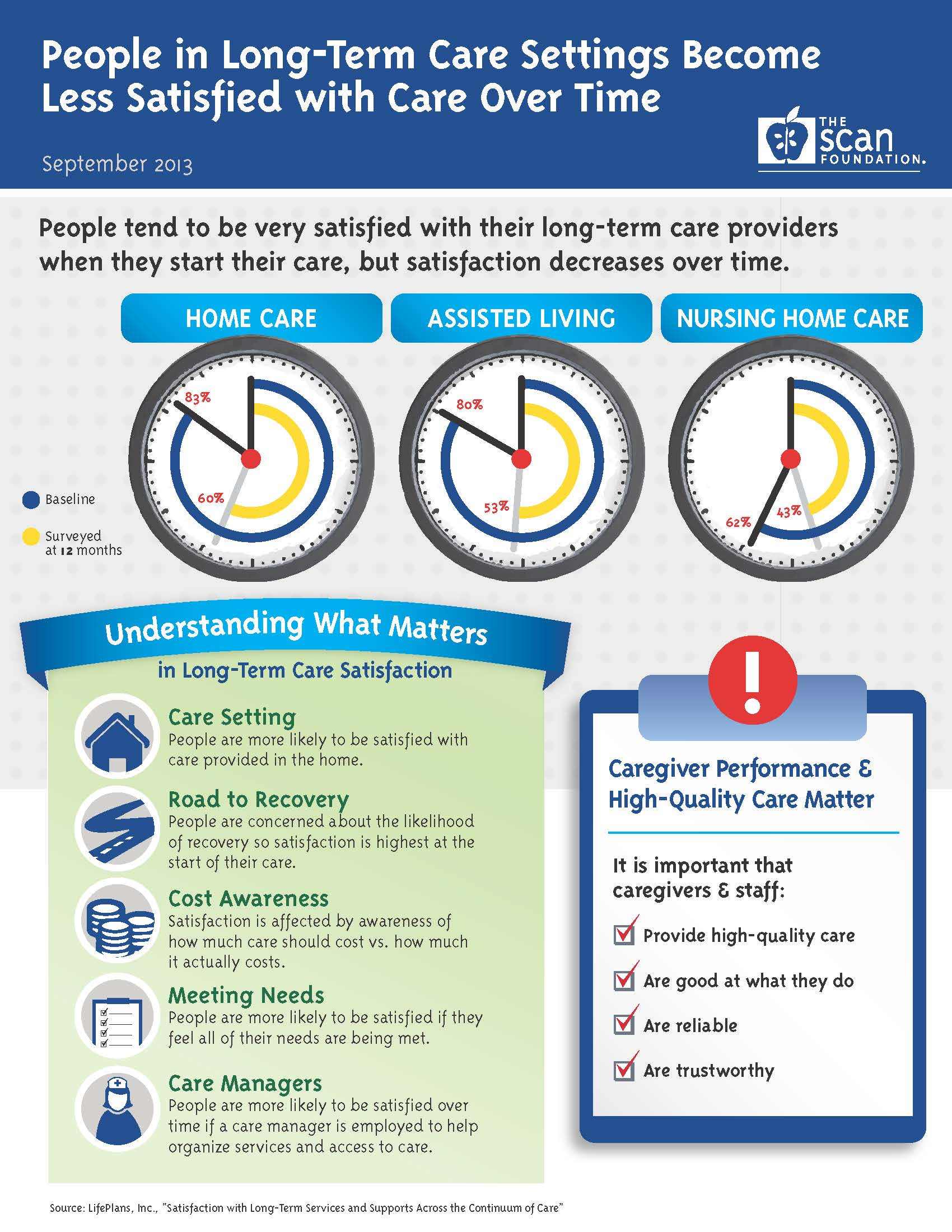When it comes to aging with dignity and independence, the enduring dilemma of how people and society should pay for needed long-term care services often grabs the spotlight. But when money is not a primary focus, what are the most important elements to determine whether people are satisfied with the care they receive? The experts at LifePlans Inc., with support from The SCAN Foundation, recently examined satisfaction with care over time for people who needed daily help and were getting it through a long-term care insurance benefit. In this study, care ranged from limited assistance to round-the-clock support, and in a variety of locations including care at-home and in institutional settings. Since the study focused on those claiming their insurance benefit, cost of care and ability to pay were largely removed from the equation.
What did they learn? The bottom line is that people are most concerned about the skillset of the caregiver, trust matters a lot, and satisfaction varies based on the presence of other caregivers.
Generally, people connect satisfaction with the technical abilities of their caregiver. These are basic people skills, which include effective verbal and written communication, being observant and the ability to follow rules and protocol. These skills are critical to providing assistance with daily activities, such as taking medications, cooking, dressing and bathing. They are also tantamount to building a solid relationship between the caregiver and the individual needing support, another key element in maintaining high levels of satisfaction.
Similarly, physical security was linked to satisfaction, as people want to feel safe and protected with their caregivers. Receiving paid care in the home often involves bringing an unknown person into one's personal living space. In this case, the emotional relationship that results from trust and communication between the caregiver and the individual needing support is crucial. Interestingly, when receiving care inside one's home, the sense of personal security that comes from a strong caregiver bond becomes more important than the physical ability and skill level of the caregiver.
The study also examined how people rate their care over time. People are quite concerned about the likelihood of recovery, so satisfaction is generally highest at the outset of accessing services. Typically, this is when the need for care is most acute. However, satisfaction levels diminished over time across all care settings from in-home to nursing home care. Possible explanations include the worsening of an individual's health or perhaps the existence of needs that are not being adequately addressed. This decline in satisfaction calls for frequent reassessment in order to ensure that the appropriate level of care is being provided as needs change over time.
The study analyzed whether the presence of unpaid and paid caregivers working together affects satisfaction. Results showed that when an unpaid caregiver is present, there is a lower level of satisfaction with the paid caregiver. For the most part, unpaid caregivers tend to be spouses, children, friends, neighbors or other relatives. Family and friends may be more in tune with an individual's emotional needs even if they are not skilled at providing the technical care needed. When both types of caregivers are present, an appropriate delegation of duties can help. For example, the paid caregiver might focus more on daily physical needs, such as bathing and dressing, while the unpaid family member can concentrate on emotional support.
These findings shed new light on what is really important to people when receiving support for basic daily needs. While cost will likely remain as a top tier issue in delivering long-term care, quality from the person's perspective matters, regardless of who pays for the care. The bottom line is that all older adults and people with disabilities deserve the same considerations for receiving satisfactory care, including assistance provided by a skilled caregiver, trustworthy working relationships, and ongoing assessments to ensure that the support being provided meets the individual's needs. These are the fundamental components of a long-term care system that truly advances aging with dignity, choice, and independence.

